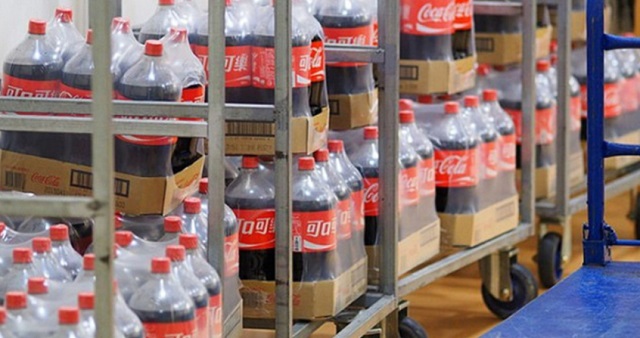
Manufacturers want government to continue footing the bill for due to coronavirus pandemic
Kampala, Uganda | JULIUS BUSINGE | Uganda’s manufacturers now want government to continue footing the bill for the Digital Tax Stamps (DTS) due to the threat being posed by coronavirus pandemic (COVID-19) to businesses.
DTS are markings that are applied to goods or their packaging containing security features and codes to aid tax authorities to effectively collect applicable tax revenues on the affected goods/items.
The government last year single sourced a Swiss Company, SICPA, and rolled out the new system in November, with the promise to meet the cost for one year. The new system applies to beer, spirits, wine, soda, mineral water and tobacco products, both locally manufactured and imported.
In a letter dated May 22, signed by Uganda Manufacturers Association Executive Director, Daniel Birungi, addressed to the Minister of Trade Industry and Cooperatives, Amelia Kyambadde, UMA says the government should continue footing the DTS bill as a form of stimulus package given that the future of business growth is unclear due to COVID-19.
DTS costs between Shs15 and 200 per item, according to Uganda Revenue Authority, with a stamp on a bottle of water costing Shs15, a bottle of beer Shs50, and Shs185 per bottle of wine and spirit.
The manufacturers say like other sectors of the economy, the beverage sector (juice, water and alcohol) is one of the worst hit following the government move to implement various measures that among others included closure of bars and public gatherings to contain the spread of COVID-19.
These measures, manufactures say, have reduced the industry’s production capacity by at least 40% and sales volume by between 50% and 65%.
The manufacturers warn that in the event that the already distressed companies start to meet the DTS costs, then, the prices for final products will sharply surge.
The companies will also be forced to rationalise their third party service providers which could impact at least 450 third party companies that provide services to the different manufacturers.
“It will also cause a slowdown in the trading of at least 88, 000 selling points due to their inability to afford the products in question, (and) this will in turn affect at least 352, 000 households that directly benefit from the earnings within these selling points,” the manufacturers say, adding that the move will also reduce on the uptake of utilities like water and electricity.
The manufacturers argue that in the event that DTS cost is reverted to the individual companies, then the volume of beverages sold would decline by up to 20% and so is tax revenues to government. In addition, the manufacturers argue that illicit trade for beverages that currently stands at 66% will increase on the Ugandan market.
The benefits
UMA says that once the government accepts their request, there are benefits that will accrue to the economy including; UMA members investing in opportunities to redevelop the trade and support the trading outlets/shops adversely impacted by the lockdown measures.
The manufacturers also claim that they would also focus on financing opportunities to redevelop the different value chains impacted during the pandemic – that is supporting at least 44, 000 farmers growing grain and cereals in different parts of the country; normalizing production, maintaining its staff, suppliers, thereby protecting jobs and continuing to contribute to PAYE and related tax revenues.
However, the Assistant Commissioner in charge of marketing at the Ministry of Trade Industry and Cooperatives, Cleopus Ndorere, told The Independent on May 28 in an interview that although the ministry DTS Committee were yet to sit and look at the letter and define the way forward, there is still time for government to evaluate the entire process and making appropriate recommendations.
The battle against government’s digital stamps has been on since 2017 when URA mooted the idea. Uganda Alcohol Industry Association, an umbrella body of sellers and manufacturers of alcohol, wrote extensively urging URA to drop the idea, but it and government officials including President Yoweri Museveni have argued this system is necessary because the country needs to collect more revenue to finance its development plan.
URA had a collection target of Shs20trillion for the 2019/2020 financial year that ends next month, with DTS generating at least Shs48billion.
****
CLICK TO READ ONLINE MAGAZINE HERE
 The Independent Uganda: You get the Truth we Pay the Price
The Independent Uganda: You get the Truth we Pay the Price


